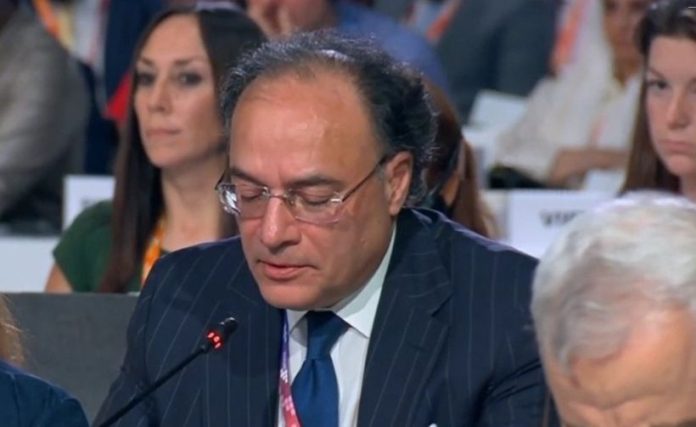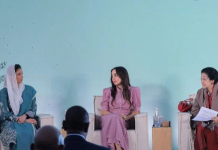Finance Minister laid out a comprehensive three-pronged strategy to effectively implement the Sevilla Outcome and foster meaningful progress. As a first step, he stressed the need for urgent execution of priority actions to transition from pledges to tangible delivery
DNA
MADIRD: DFederal Minister for Finance and Revenue, Senator Muhammad Aurangzeb, has called for a renewed global commitment to revitalising international development cooperation to meet the aspirations of the 2030 Agenda for Sustainable Development.
Speaking at a Multistakeholder Round Table during the Fourth International Conference on Financing for Development (FfD4) in Sevilla, Spain, the Minister emphasised that such revitalisation is not merely desirable but essential at this pivotal juncture for global development.
In his remarks, the Finance Minister laid out a comprehensive three-pronged strategy to effectively implement the Sevilla Outcome and foster meaningful progress. As a first step, he stressed the need for urgent execution of priority actions to transition from pledges to tangible delivery. This, he noted, must involve greater country ownership of development agendas, with national strategies taking precedence over donor-driven models. Aligning frameworks with domestic priorities is key to ensuring sustainability and relevance on the ground.
The Minister further underscored the importance of expanding access to concessional and blended financing—particularly for climate initiatives and Sustainable Development Goals (SDG)-related investments—in order to catalyse private capital in fiscally constrained developing countries. He called for a thorough reform of the global financial architecture, urging multilateral development banks, international financial institutions, and credit rating agencies to better reflect countries’ reform efforts, climate vulnerabilities, and developmental ambitions in their lending terms and assessments.
Senator Aurangzeb also highlighted the need for a paradigm shift in how development cooperation is approached within developing countries themselves. He advocated moving away from input-focused models towards strategies that are results-oriented and linked to measurable development outcomes. He urged the integration of cross-cutting themes such as climate resilience, gender equity, and digital inclusion into development plans, while emphasising the need to scale up South-South and triangular cooperation through context-specific, peer-driven solutions rather than externally imposed frameworks.
As a third key measure, the Minister proposed the establishment of global delivery mechanisms to accelerate implementation of the Sevilla Commitments. These could include expanded blended finance platforms designed to de-risk private investment through instruments such as guarantees, first-loss capital, and outcome-linked bonds. He called for the formation of new multi-stakeholder partnerships that would bring together governments, development banks, philanthropic entities, and private investors around shared, measurable goals. Additionally, the Minister recommended setting up a dedicated global facility or task force tasked with monitoring and fast-tracking the Sevilla action agenda, complete with timelines, assigned responsibilities, and robust accountability systems.
Concluding his address, Senator Muhammad Aurangzeb reaffirmed Pakistan’s commitment to fostering inclusive and results-driven partnerships. He urged the international community to move decisively from rhetoric to action, stating, “Let us resolve today to drive this transformation together.”

















